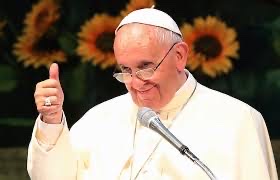The Kurgan’s Canonical Contradiction: When “Simple and Obvious” Requires 500 Pages and a Blog Empire.
There’s a peculiar irony in the self-appointed inquisitor of post-Vatican II Catholicism, The Kurgan, whose bold proclamations rest on the supposed clarity—nay, the self-evidence—of Canon 188.4 of the 1917 Code of Canon Law. According to him, this single canon is so “simple and obvious” that it single-handedly invalidates the entire hierarchy of the Catholic Church since 1958.
Simple and obvious? Really?
Let’s entertain this premise for a moment. If the meaning of Canon 188.4 is as self-evident as The Kurgan insists, why then did he feel compelled to write a 470+ page book (Reclaiming the Catholic Church), publish a flurry of follow-up blog posts, create YouTube videos, and even launch a Discord group to continually defend and reinterpret this supposedly transparent text?
This isn’t just overkill—it’s the sign of a man who has to shout “obvious” because the evidence is anything but.
Let’s remember: Canon 188.4, in isolation, states that a cleric who "publicly defects from the Catholic faith" loses his office ipso facto. The Kurgan’s whole thesis is that Vatican II was heretical, and therefore every bishop and pope involved in it, or who accepted it, has publicly defected. Case closed, right?
Wrong.
Because he knows—on some level—that the canon isn't a magical nuke you can drop on the Church. So instead, he must:
-
Ignore the follow-up canons (2201–2205) that govern imputability—you know, the actual conditions the Church uses to determine guilt and juridical consequences.
-
Pretend that a layman, with no authority and no canonical procedure, can determine who has “publicly defected” and when.
-
Invent an ecclesiology where every bishop who hasn’t sworn allegiance to his personal interpretation of 188.4 is an antipope, heretic, or apostate.
-
And then he must defend this house of cards with 500 pages of labyrinthine legalese and rhetorical fog.
Here’s the reality: when something is truly obvious, it doesn’t require an exegesis. It doesn’t demand volumes of post hoc rationalizations. It doesn’t need a digital guerrilla warfare campaign against everyone who dares ask a question.
When a man spends years trying to convince you something is "simple," it's not because it's simple. It’s because he’s desperately trying to make it appear simple—to himself most of all.
This isn’t theological clarity. It’s obsession masquerading as revelation.
And let’s not forget the arrogance of it all. The Kurgan implies that every canon lawyer, every bishop, pope, and priest for the last sixty years has missed the “obvious” meaning of Canon 188.4—but he has cracked the code that eluded the Church Fathers and saints.
Give me a break.
At some point, this is no longer about canon law. It’s about vanity dressed in traditionalist vestments, demanding that the Church conform to one man’s personal interpretation, even if it means denying Christ's promise that the gates of Hell shall not prevail against His Church.
So no, Canon 188.4 is not “simple and obvious”—at least not in the way The Kurgan claims. What is obvious is this: when someone needs half a thousand pages and an online militia to explain a single canon, it’s probably because his position doesn’t stand on solid ground.
It stands on ego.

Comments
Post a Comment